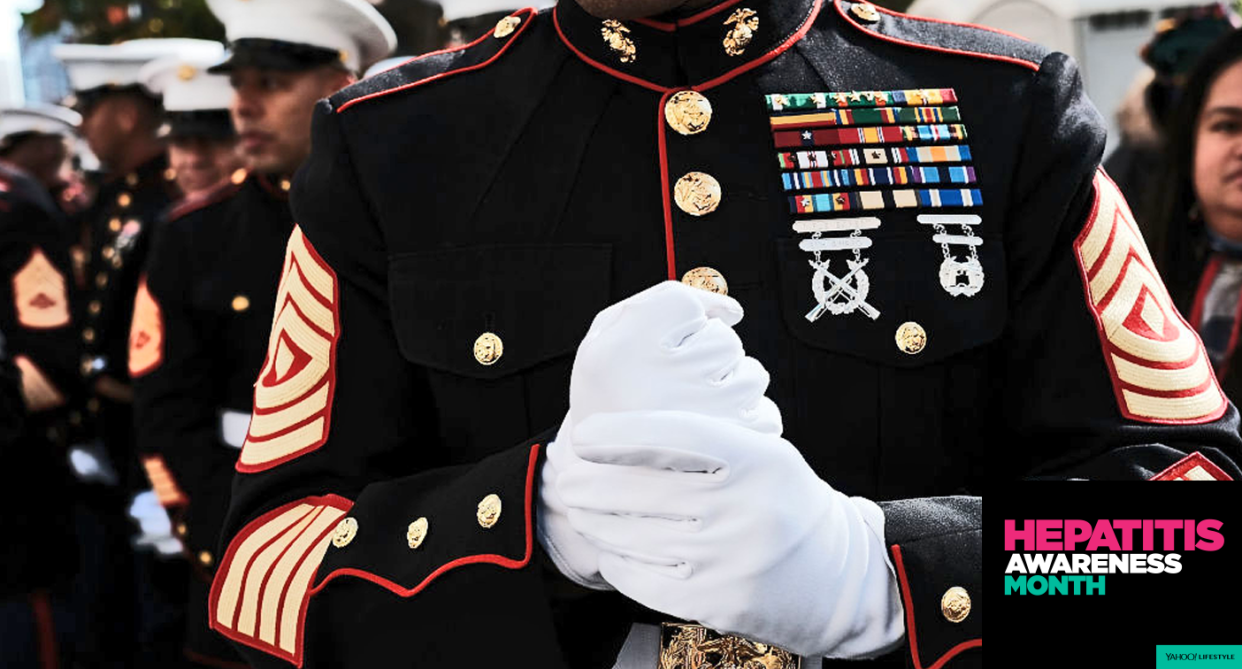Why baby boomers and veterans are more likely to have hepatitis C

Nearly anyone can develop hepatitis C, but certain groups in the U.S. are at a higher risk than others: veterans and baby boomers.
Hepatitis C is a liver infection caused by the hepatitis C virus. The condition is a blood-borne virus, according to the Centers for Disease Control and Prevention (CDC), meaning that people get it when infected blood enters their bloodstream. Hepatitis C can cause liver damage, cirrhosis, and liver cancer, and most people with the condition don’t even know that they have it.
More than 3 million people in the U.S. have hepatitis C, per the U.S. Department of Health and Human Services (HHS), so this is not an uncommon infection.
The CDC specifically encourages people born between 1945 and 1965 (aka “baby boomers”) to get tested for hepatitis C. People in this age group are five times more likely to have hepatitis C than other adults, and many are thought to have been infected in the 1960s through the 1980s, when the transmission of hepatitis C in the U.S. was the highest, the organization says.
The reasoning behind this isn’t entirely clear, but there could be a few factors at play. During the ’60s through the ’80s, there was more drug use and experimentation — both of which increase someone’s chances of contracting hepatitis C, William Schaffner, MD, an infectious disease specialist and professor at the Vanderbilt University School of Medicine, tells Yahoo Lifestyle.
It’s also possible that they could have gotten infected from medical equipment before infection-control procedures were put into place, Carlos Romero-Marrero, MD, a hepatologist at the Cleveland Clinic specializing in hepatitis, tells Yahoo Lifestyle. Blood transfusions are another possible cause: Donated blood wasn’t universally screened for hepatitis C before 1992, infectious disease expert Amesh A. Adalja, MD, senior scholar at the Johns Hopkins Center for Health Security, tells Yahoo Lifestyle.
Veterans are another group with a higher-than-average risk of having hepatitis C. According to the American Liver Foundation, vets have a three-times-greater risk of the condition than other Americans. While all veterans are at an increased risk, the majority of the ones with hepatitis C served in the Vietnam War, according to a study published in the Journal of Community Health.
The prevalence among veterans is likely due to a few things, Adalja says. The biggest is that those who served in the Vietnam War are likely from the baby boomer generation, he says. Others may have also engaged in injection drug use or could have been exposed in the field. Given that hepatitis C can also be transmitted from sharing personal care items like toothbrushes and razors and from being tattooed with an unsterilized needle, it’s also plausible that the virus could have been spread this way, Schaffner points out.
If you’re a veteran or member of the baby boomer generation, it’s important to get tested for hepatitis C — and it’s just a simple blood test. Again, many people who have the infection don’t know it, and it can cause long-term health problems in the future if you don’t take action now.
Read more from Yahoo Lifestyle:
Scientists say they’ve discovered a new organ, and it’s the biggest in your body
12 foods every healthy eater should have in their kitchen — and why they’re good for us
Follow us on Instagram, Facebook, and Twitter for nonstop inspiration delivered fresh to your feed, every day.
